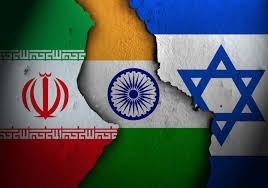ISLAMABAD (Web-Desk); In a landmark development for regional trade and economic integration, Pakistan has formally signed a trilateral railway agreement with Uzbekistan and Afghanistan. The agreement marks a significant milestone in advancing the Uzbekistan-Afghanistan-Pakistan (UAP) Railway Project, a strategic initiative aimed at enhancing connectivity across Central and South Asia.
The announcement was made on Thursday by Deputy Prime Minister and Foreign Minister Ishaq Dar, who shared the news via a post on social media platform X. He congratulated the governments and people of all three countries on the successful conclusion of the Framework Agreement, which will now enable the launch of a Joint Feasibility Study for the proposed Naibabad–Kharlachi rail link — a critical component of the UAP corridor.
The UAP Railway Project is envisioned to link Uzbekistan with Pakistan’s seaports via Afghanistan, providing Central Asian countries with direct access to the Arabian Sea. This project is expected to open new trade and transit routes, reduce transport costs, and create economic opportunities across the region.
“This agreement is a major milestone in promoting regional connectivity and economic integration,” Dar stated. He added that the trilateral agreement was a result of sustained negotiations and diplomacy that began during the tenure of the Pakistan Democratic Movement (PDM) government in 2022–23, when he was serving as Finance Minister. At that time, he was tasked with spearheading the initiative in collaboration with the governments of Uzbekistan and Afghanistan.
Dar extended special thanks to Uzbek Foreign Minister Bakhtiyor Saidov and Afghan Acting Foreign Minister Amir Khan Muttaqi for their active cooperation throughout the negotiation process. He emphasized that the consistent engagement of all three nations was instrumental in achieving consensus on the Framework Agreement.
According to the Pakistani Foreign Office, the signing ceremony in Kabul was attended by DPM Dar, Federal Minister for Railways Hanif Abbasi, Pakistan’s Special Representative for Afghanistan, and senior officials from the Ministry of Railways. The agreement demonstrates Islamabad’s strong commitment to regional connectivity as a foundation for economic diplomacy.
The Foreign Office described the agreement as a significant step toward the realization of the UAP Railway Corridor. It stressed that the project not only strengthens Pakistan’s geo-economic position but also serves as a bridge between Central Asia and South Asia.

During his visit to Kabul, Dar also held a high-level meeting with Afghan Acting Foreign Minister Amir Khan Muttaqi. Delegations from both sides participated in detailed discussions, reaffirming the shared resolve to deepen bilateral ties in areas of mutual interest, including trade, transit, and regional security.
Both sides agreed on the need to maintain momentum in bilateral cooperation and reiterated their commitment to developing trans-regional infrastructure that can enhance economic growth and people-to-people connectivity.
In a related development, Pakistan has recently upgraded its diplomatic mission in Kabul by appointing an ambassador, reflecting the warming of diplomatic ties between the two neighbors. Earlier this month, Pakistan and Afghanistan held the inaugural round of talks under a new additional secretary-level mechanism to address border movement, trade facilitation, and counterterrorism cooperation.
During the talks, both countries acknowledged terrorism as a serious threat to regional peace and agreed to strengthen legal cross-border movement and address shared security concerns through coordinated measures.
The UAP Railway Project is now seen as a cornerstone for broader regional development, providing a practical foundation for peace, stability, and prosperity through economic connectivity.
The Framework Agreement’s signing signals not just logistical progress, but also a renewed commitment to building long-term partnerships in a region historically shaped by both geopolitical tensions and potential for integration.

























